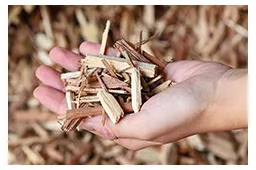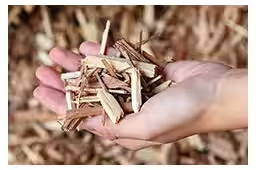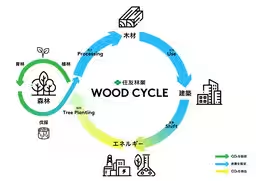

Sumitomo Forestry and Rengo Join Forces to Produce Bioethanol for Sustainable Aviation Fuel
Sumitomo Forestry and Rengo Collaborate on Bioethanol Production
In a significant move towards sustainable aviation, Sumitomo Forestry Co., Ltd. has struck a basic agreement with Rengo Co., Ltd. to produce bioethanol derived from wood waste. This partnership is particularly noteworthy as it utilizes construction waste generated from Sumitomo Forestry's housing projects to manufacture bioethanol, which will serve as a raw material for Sustainable Aviation Fuel (SAF). The objective is to establish mass production technologies for wood-based bioethanol, amid increasing demand for alternatives to petroleum-based fuels.
Details of the Collaboration
The two companies are set to advance their discussions and aim to establish a jointly funded company by December 2025. They target an annual commercial production goal of 20,000 kL by 2027. The bioethanol produced will be sold to fuel suppliers and converted into SAF for use in aviation.
Rengo’s subsidiary, Biomaterial in Tokyo, which specializes in the research and development of biomass chemicals, will exploit its technologies for bioethanol production. The manufacturing will take place at the main plant of Daiko Paper, a Rengo subsidiary involved in producing packaging paper and recycling waste materials. Sumitomo Forestry will collect construction waste from its housing sites in Shizuoka Prefecture to supply as recognized materials under the CORSIA certification, crucial for international aviation fuel use.
Moreover, the company plans to utilize the by-product lignin generated during the manufacturing process to produce materials for residential coatings and other applications, thereby establishing a business model that maximally utilizes wood resources.
The Urgent Need for Sustainability
Addressing climate change and reducing carbon dioxide emissions is an urgent global challenge. The international aviation sector, through organizations such as the International Civil Aviation Organization (ICAO) and the International Air Transport Association (IATA), has set goals to achieve net-zero CO2 emissions by 2050. SAF has proven to substantially reduce CO2 emissions from aircraft by approximately 70-80% compared to traditional jet fuels, leading to a rising demand for biofuels.
However, it is estimated that 450 million kL of SAF will be required by 2050, while the available supply was only about 300,000 kL in 2022, representing a mere 0.07% of the needed amount. The Japanese government aims to replace 10% of domestic airline fuel with SAF starting in 2030, with the Ministry of Economy, Trade, and Industry estimating a domestic demand of 1.72 million kL in the same year. As both domestic and international demand for SAF is on the rise, there is an urgent need for the development and production of domestically sourced SAF.
Currently, technologies to produce SAF from waste cooking oil, corn, and sugarcane are in place, but the rapid increase in demand raises concerns over raw material shortages and competition with food supplies. The potential to commercially produce bioethanol from non-food competing wood resources could not only help reduce CO2 emissions but also diversify the raw material base.
A Vision for the Future
Mindful of the potential for bio-based chemicals and fuels from wood constituents, Sumitomo Forestry established a new business development department, the Bio-Refinery Promotion Office, in January 2024. They are focused on developing technologies and validating business models for this bio-refinery initiative. Through the bioethanol production project, they aim to quickly establish mass production techniques, thereby facilitating the transition from fossil fuels to biofuels and contributing to the reduction of CO2 emissions and social decarbonization.
The Sumitomo Forestry Group operates globally across various sectors, including forestry management, wood materials manufacturing and distribution, residential and multi-story wooden construction contracts, real estate development, and woody biomass power generation. Their long-term vision, "Mission TREEING 2030," aims to enhance the CO2 absorption capacity of forests by promoting the wood-based architecture cycle, thereby contributing to the reduction of carbon emissions both within their operations and society at large.
For more information about Sumitomo Forestry’s long-term vision, watch this video.




Topics Environment)










【About Using Articles】
You can freely use the title and article content by linking to the page where the article is posted.
※ Images cannot be used.
【About Links】
Links are free to use.